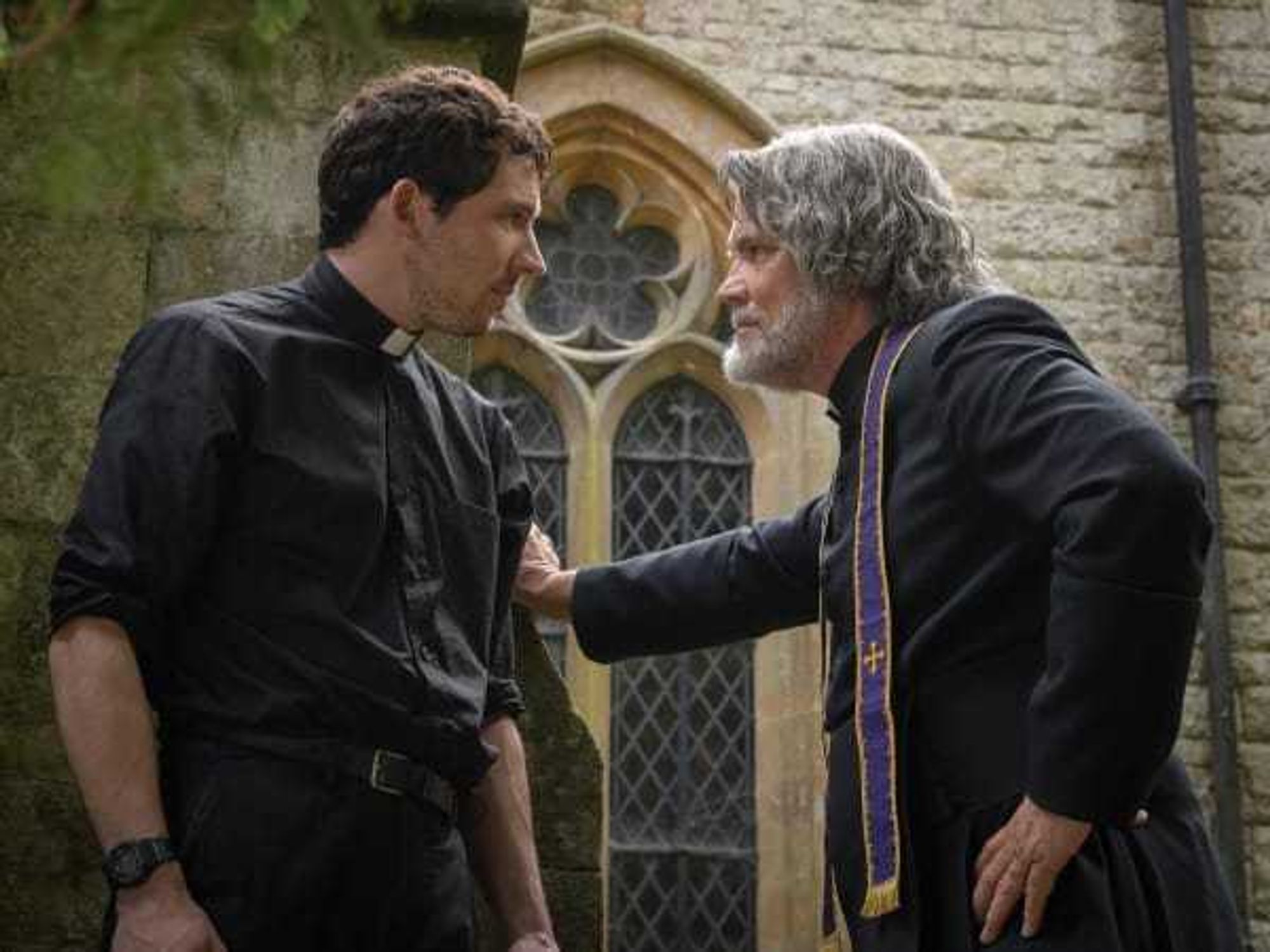Movie Review
Kingdom of the Planet of the Apes keeps the series in full swing

Raka (Peter Macon), Noa (Owen Teague), and Freya Allan in Kingdom of the Planet of the Apes.
The success of the reboot of the Planet of the Apes series has been nothing short of stunning. 2011’s Rise of the Planet of the Apes proved the concept with great visuals and a stellar lead motion-capture performance by Andy Serkis. Both of those traits continued in Dawn of the Planet of the Apes and War for the Planet of the Apes, with each film also boasting compelling stories that raised the stakes for both ape and human characters.
Fans of that trilogy might be wary of the new Kingdom of the Planet of Apes for several reasons: It’s been seven years since the last film; Serkis’ character, Caesar, died at the end of that film; and the director of the previous two films, Matt Reeves, has been replaced by Wes Ball, who helmed the so-so Maze Runner trilogy. But the series has once again risen above expectations, delivering a story with all-new characters that remains as captivating, both visually and storytelling-wise, as its predecessors.
Set “many generations” after the time of Caesar, it centers on Noa (Owen Teague), part of a chimpanzee tribe with an affinity toward training falcons. An attack on the tribe leaves Noa on his own, although he soon finds himself being followed by a stray human, Mae (Freya Allan), who appears to be frightened and hungry. His travels looking for his tribe also lead him to team up with an orangutan, Raka (Peter Macon), whose easygoing demeanor is a sharp contrast to that of Noa.
Most of Noa’s tribe has been taken by a shrewdness of apes led by a chimp who has dubbed himself Proximus Caesar (Kevin Durand). This Caesar is out not only to rule roughshod over any rival ape groups, but to also find a way to break into an old human military stronghold on the California coast. It’s up to Noa to prove himself against seemingly insurmountable odds.
The key to the film, one that makers of other potential blockbuster films would do well to heed, is the storytelling. The opening 30 minutes introduces the new characters in clear ways that still bring the thrills for which the series is known. In setting the table in an understandable manner, Ball and writer Josh Friedman give audiences a connection to the characters that pays dividends as the film goes along. They also give us something new, as the majority of the story is concerned with violence between ape groups, rather than the threat of humans that dominated the previous films.
Once again, Weta FX proves itself the cream of the crop for visual effects. The motion capture system used to create the ape performances is seamless, allowing the actors to fully emote while still being believable as apes. And the action they create, whether it’s apes swinging through trees, fight scenes, or explosions, makes the film a completely immersive experience, one that never feels fake in the slightest.
Fans of the history of the Planet of the Apes franchise will enjoy the many references the filmmakers throw their way. An allusion to calling all humans Nova, a glimpse of humans reduced to primal beings, and a shot of apes riding horses along a beach call to mind the original 1968 Planet of the Apes film. There are constant reminders of the most recent films, with lots of talk about Caesar and the window symbol from Rise of the Planet of the Apes continuing to pop up in different spots.
In a way that’s much different than animated characters, you can really feel the performances given by the actors playing the apes. Teague, Durand, and Macon each do great jobs making the audience feel the essence of their characters, and the supporting characters come off well, too. Allan represents humans for most of the film, and she is very effective at portraying the wide-ranging arc her character experiences.
Overcoming every obstacle that seemed to be in its way, Kingdom of the Planet of the Apes is a great start to the summer movie season. If future filmmakers remain committed to the standard set forth by these past four films, the series could conceivably continue for years to come.
---
Kingdom of the Planet of the Apes opens in theaters on May 10.
